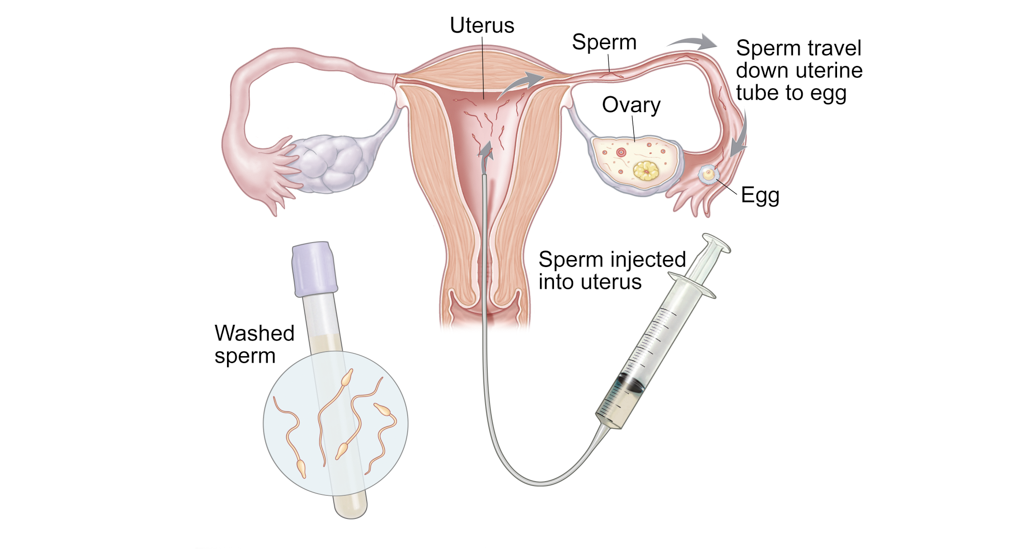Why it’s done?
A couple’s ability to become pregnant depends on many different factors. Intrauterine insemination is used most often in couples who have:
- Donor sperm: For women who need to use donor sperm to get pregnant, IUI is most commonly used to achieve pregnancy. Frozen donor sperm specimens are obtained from certified labs and thawed before the IUI procedure.
- Unexplained infertility: IUI is often performed as a first treatment for unexplained infertility along with ovulation-inducing medications. Endometriosis-related infertility. For infertility related to endometriosis, using medications to obtain a good-quality egg along with performing IUI is often the first treatment approach.
- Mild male factor infertility (subfertility): Your partner’s semen analysis, one of the first steps in the medical assessment of infertility, may show below-average sperm concentration, weak movement (motility) of sperm, or abnormalities in sperm size and shape (morphology). IUI can overcome some of these problems because preparing sperm for the procedure helps separate highly motile, normal sperm from those of lower quality.
- Cervical factor infertility: Your cervix, at the lower end of the uterus, provides the opening between your vagina and uterus. Mucus produced by the cervix around the time of ovulation provides an ideal environment for sperm to travel from your vagina to the fallopian tubes. But, if your cervical mucus is too thick, it may impede the sperm’s journey. The cervix itself may also prevent sperm from reaching the egg. Scarring, such as that caused by a biopsy or other procedures, can cause the cervix to thicken.

